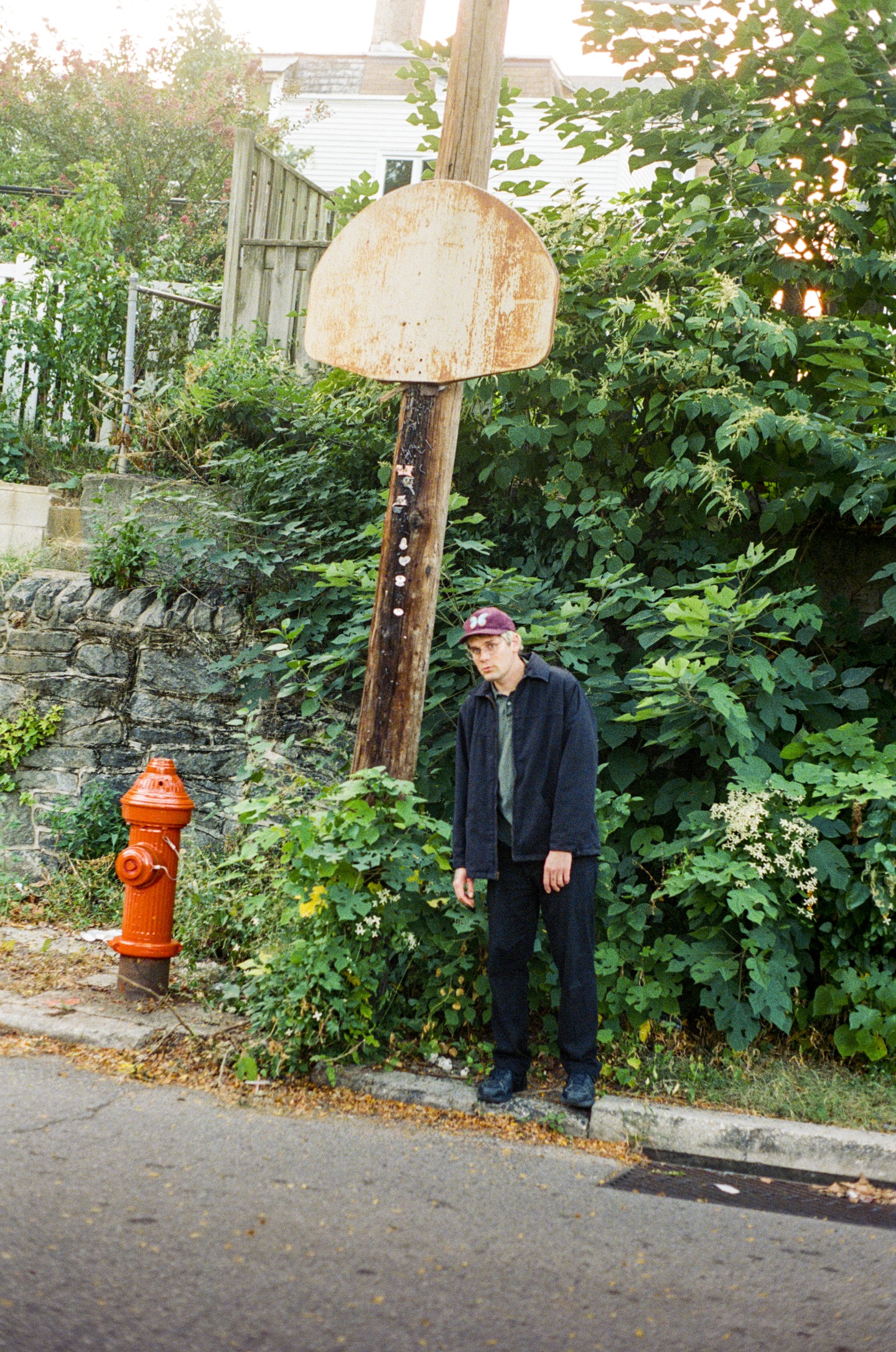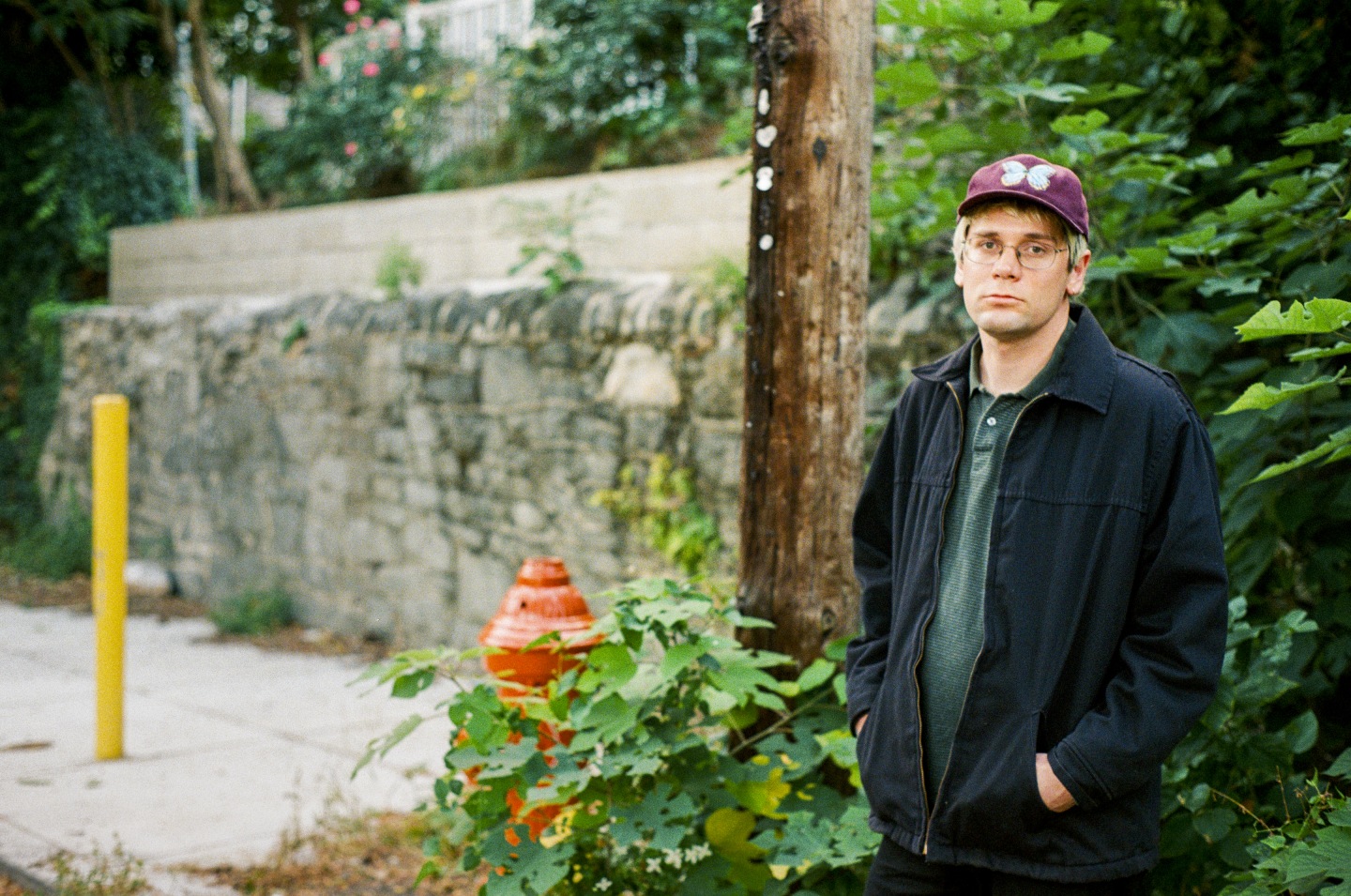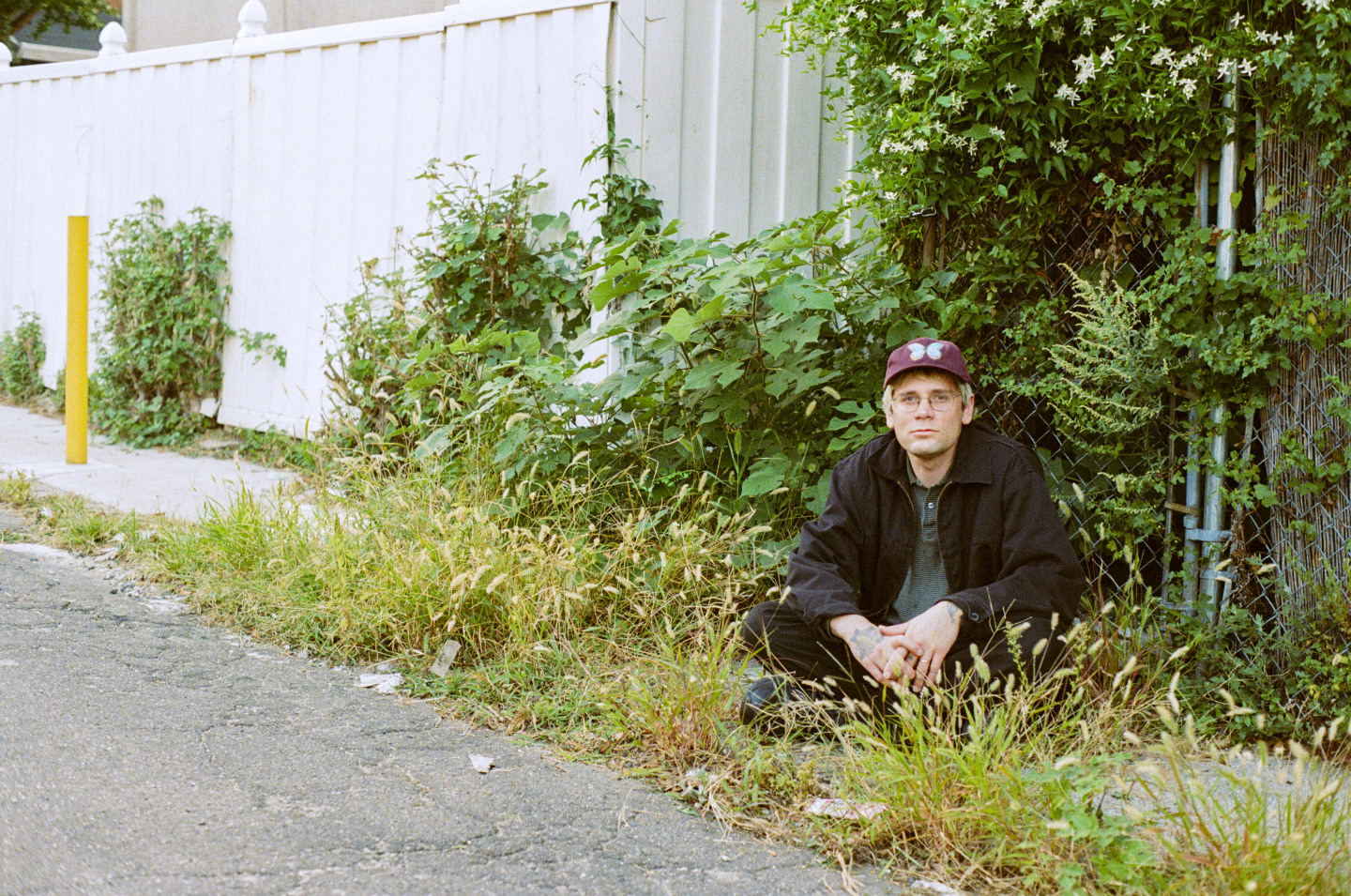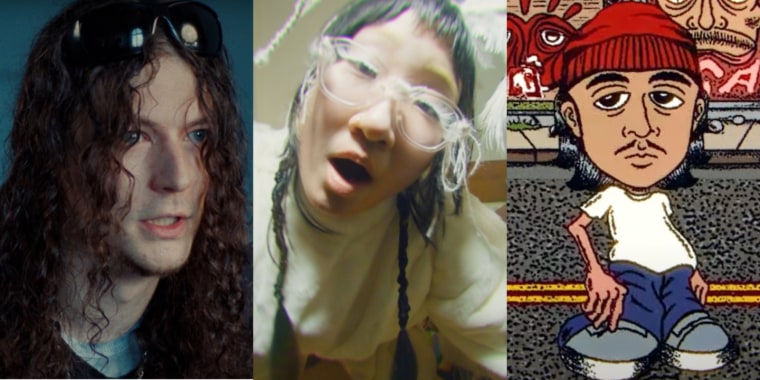Juliette Boulay
For many DIY artists, one of the biggest challenges is finding a balance between paying the bills and being creative. The thing that funds recording and live performances is the very same thing that keeps you too busy to write or too tired to practice. For Greg Mendez, his side job as a laborer in his hometown Philadelphia proved to be an unlikely godsend. “I smashed my head into a piece of metal,” he says of the accidental injury he sustained while demolishing a house. Workers compensation allowed him to spend time at home writing and recording his self-titled album, a collection of nakedly honest and gently strummed indie rock confessionals first released in 2023 and re-issued this month via his new label Dead Oceans (Mitski, Phoebe Bridgers).
That time at home was key to the creation of Greg Mendez, though he is keen to stress that he was legitimately fucked up at the same time. “I kept going back to work and getting re-injured,” he says from his Philly apartment. “That’s the thing with manual labor. They’re not just paying you for your time, you’re getting paid for the damage to your physical health.” Mendez is still at a level in the music world where he requires a second job, though these days he’s switched to the far less precarious position of assistant at a local photography studio.
Greg Mendez was an introduction to Mendez’s world for many, though he has been quietly sharing music with the world since 2006 and has amassed a small mountain of material online. He was initially reluctant to promote himself owing to the stigma of the singer-songwriter label among his peers.
“Back then people thought a singer-songwriter was Jack Johnson or John Mayer,” Mendez laughs. He’d grown up playing in punk bands and was reluctant to tell people he also wrote solo material. “I just felt like I didn’t really like I had a place,” he says looking back. “I never thought I was going to be successful because it just wasn’t being heralded at all.”

Juliette Boulay
Mendez watched from the sidelines as the image of the singer-songwriter changed over the decades, and peers like Alex G enjoyed breakout success while he continued to work part-time jobs and put out music to little recognition. Drug and alcohol addiction soon began to wreck havoc on his life, leading to stints of homelessness and a “horrific, violent, and extremely traumatic” period.
Mendez got sober around 2017 but it wasn’t until 2023, and the release of his self-titled album, that his storytelling ability and array of unshakeable melodies finally propelled his name out of Bandcamp’s endless archive.
“You wanna hear this story about the time we got arrested at a crack den?” goes the most disquieting line on “Maria.” It’s a song that twinkles with a beauty that belies the decay at its core. Mendez’s way with a hook brightens the corners of a tale that involves jumping out of a bathroom window to evade the cops. Mendez isn’t the first to create a romantic metaphor around his relationship with drugs (“Come back to me, I’ll make you happy”) but throughout the album, he shows a unique ability to capture the pleasure and pain of addiction. “I still hope your name don’t appear in some obituary,” he sings on the gorgeous and desolate “Hoping You’re Doing Okay,” one of many songs on the album that call to mind the similarly candid Elliott Smith. “I know it’s so unclear,” he continues over a gently strummed guitar, “when you’ve begged so long on bruised knees.”
Mendez says he didn’t set out to write so openly about his past, but that “following the vibe” while writing led him there. “It feels good to take these things that were really traumatic and intense at the time and find out the worst parts about yourself and other people and turn that into something that is meaningful to me and to other people,” he admits.
Being up-front in his songwriting didn’t come naturally to Mendez. He says anything released before 2017’s ¯_(ツ)_/¯ (or “Shrug” as fans call it) doesn’t count as part of the canon.
“I was embarrassed and I was trying to hide by obfuscating things or being psychedelic about things” he says, cringing at the thought of the “nonsense lyrics” he’d write. “Shrug was the first thing I put out that really felt like an album that I could stand by.”
I point out that Mendez’s songwriting gained clarity when he got sober and he agrees. “I was really coming out of many shells at that time,” he says. “I was hiding in the way that I was living my life and also in the songwriting, too. I also started feeling things a lot more, too. Getting high can feel like throwing a blanket over your emotions. Once you take the blanket off it really feels really intense for a while.”

Juliette Boulay
Mendez hoped to follow the self-titled album with another project and extensive tour. However, a persistent wrist injury stopped him in his tracks, forcing the cancelation of a summer’s worth of live dates; Mendez was unable to play guitar for three months while he recovered. He flashes a scar and describes an equally gnarly surgery involving shortening bones to save a cartilage disc. “At least it’s not constantly being ground up against now” he says.
Unable to use his right hand, Mendez began writing songs left-handed on a keyboard. What began as a pragmatic exercise soon developed into a project of its own. First Time/Alone, released in October, is made up of two songs written on keys and two more when Mendez was finally able to strum his guitar again. Like the self-titled album, Mendez leaves himself exposed in a way that borders on feeling invasive and marries that discomfort to simple but undeniably beautiful tunes. “Pain Meds,” (one of the guitar-led songs) was written while a family member was close to death in the hospital. Mendez can’t help but see similarities between them and himself in a former life. “Anytime I’m presented with opiates being used in a medical situation, it’s interesting to me.” He adds that he did the drugs for “different reasons” before correcting himself. “It’s a painkiller either way, but I was using it for something else.”
I ask Mendez if he thinks gaining a following will change the unvarnished way in which he writes. He hints at having had a few uncomfortable encounters with fans over the last year and admits that, even at his relatively minuscule level of fame, being perceived by others takes its toll. “My intentions and goals as an artist are the same but everything surrounding it is different now,” he says. “There are all these different versions of you that people have and you don’t know them at all.”
Building from a place of such vulnerability may prove tricky, but right now Mendez is reveling in the humble luxuries his new label deal affords him. Used to producing and recording his songs at home, he says he is keen to work with a string arranger to take his next project to a different level. Step by step he is moving forwards, taking snapshots from a difficult past in search of the peace and stability he continues to chase.




